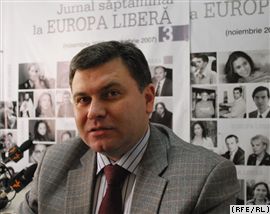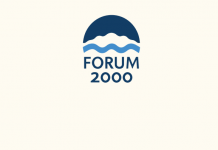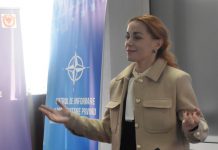As it was expected, the decree issued by Interim President Mihai Ghimpu by which June 28th was declared Remembrance Day of Soviet occupation infuriated very much Moscow. Russian anger was regarded by many as being hypocritical and disproportionate. The Foreign Ministry and the State Duma in Moscow qualified the decree as an element of a planned political campaign against the Moldovan-Russian partnership, a pseudo-historical interpretation of causes and results of the Second World War, an attempt to distort the common history of Russian and Moldovan people, an action meant to destroy the existing mechanisms for maintaining stability in the Transnistrian region.
Russian Foreign Ministry, however, expressed its hope that pragmatic approach will prevail among Moldovan authorities and the leaders of the European Integration Alliance. Perhaps, in order for the pragmatic approaches to succeed in Chisinau, those statements were followed by Russian health service announcement on banning the import of 18 shipments of Moldovan wine (102,000 bottles), because the wine was found to contain dibutyl – a substance hazardous to the health of Russian citizens, especially when it is consumed with Moldovan wine.
Faced with an unwanted and unexpected situation, leaders of the Alliance for European Integration, the Government and Foreign Ministry urged us to keep calm, be rational, to leave emotions aside and not mix politics with history. At the same time, they assured us that they will make every effort to restore relations with Russia and bring them to pragmatism and normality.
If we allow us to be guided by emotions and feelings and mix history and politics, then the attitude of our politicians and government officials could be categorized by some of us as myopia, lack of character and even hypocrisy. However, if we are guided by the recommendations of our government officials and keep our emotions under control, separate history from politics, do not forget the burden of responsibility and interest of the state, are conscious of where the gas comes from and where our wines go to, do not forget where the magic key of the Transnistrian problem is, then the very same approach could be taken as pure pragmatism.
Pragmatism is the watchword of the AEI. Since its creation, the Alliance aspires to resolve any disputes in a pragmatic manner both regarding internal differences and overcoming obstacles that have amounted in bilateral relations with Romania, Ukraine and Russia. After nearly a year since raising pragmatism at the level of state policy, it is showing signs of exhaustion. In relations between the components of AEI, pragmatism is undermined by all the more obvious lack of fair-play among the four actors. In relation with Romania, pragmatism is being increasingly criticized, yet informally, by Romanian officials, complaining that national values are passed on second track. In the case of Ukraine, recent discussions in Rada regarding Chisinau not” honoring its commitments under bilateral agreements are a signal that the substance of our pragmatism is being questioned in the Ukrainian capital. On its turn, Russia has challenged the credibility of Chisinaus pragmatism on different occasions, either in the framework of the CIS or in the context of the Transnistrian conflict settlement. And most recently, it did so on the occasion of Moldovan soldiers participating in the May 9 parade in Moscow.
Moreover, recent statements by the Foreign Ministry and the Russian Duma show how precarious is Moscow’s confidence in the Alliance for European Integration, accused of transforming Moldova into a source of regional destabilization and unpredictability”. It is also obvious from the same statement, that Moscow does not give a rusted penny for Chisinaus pragmatism. Those who still have doubts about this should read once again very carefully the statement of the Russian Duma, which is controlled by the United Russia” Party, headed by Russian Prime Minister Vladimir Putin. Ultimately, Moscow used the decree of the interim President Mihai Ghimpu as a pretext to put its foot down and dibutyl into Moldovan pragmatism. Leaders of the Alliance for European Integration were sent a blunt message that they are not pragmatic enough and that they failed Russia’s expectations.
In the context of the forthcoming parliamentary and presidential elections, we have all the chances to see our politicians launching themselves into a fierce competition to demonstrate Moscow how pragmatic is their attitude towards Russia. This however will not change the essence of the problem, namely that the current Moldovan-Russian Pragmatism is suffering from a conceptual inconsistency.
When asked to explain what the essence of pragmatism promoted in relations with Russia is, usually our politicians and diplomats use dry formulations such as we will promote a dialogue based on sincerity, transparency, predictability, consistency, mutual respect, dignity, etc…”. In fact, this mix of words betrays the lack of a well-knitted policy towards the important eastern partner. Can Putin and Medvedevs Russia be satisfied with such pragmatism, which makes reference to sincerity, transparency and dignity?
By signing the decree on commemorating the Soviet occupation, Interim President Mihai Ghimpu volens-nolens expanded to maximum the limits of sincerity of Moldovan-Russian pragmatism. Judging by the reaction of Moscow, we may say that this does not in any way accommodate the Russian politicians. It seems that, according to them, sincerity is good insofar as it does not constitute a challenge to the Soviet pseudo-truths and special interests used by the Kremlin to argue its privileged rights and responsibilities in the so-called near abroad. In other words, sincerity has different meaning and boundaries in Moscow than in Chisinau.
Despite recent events, Chisinau insists on the idea of pragmatism to persuade Russia to return to normality” and to resume fully imports of Moldovan wines. Given domestic circumstances, this attitude can be understood to a certain extent. However, continuing in this way, without any reevaluations and readjustments, will not save us from having similar bilateral short-circuits in the future. Moreover, Russia will continue to use this sort of pragmatism to blackmail us whenever it considers that Moldovan politicians have exceeded acceptable limits of sincerity, transparency and dignity etc..
In these circumstances, we urgently need to formulate a coherent strategy to give substance and, also very important, a solid backbone to our policy towards Russia. Currently, Chisinaus pragmatism is rather a tactical behavior required to ensure flexible adaptation to any internal and external circumstances. As we have seen, in the short term, such behavior may produce some ephemeral tactical gains, but in the long term, it is doomed to failure, because it is not the expression of a clearly defined policy in terms of principles, values, goals, common interests and implementation mechanisms.
Moldova, of course, must develop a long term partnership with Russia, but a realistic one, not one based on circumstantial pragmatism and chimeras, such as building a Moldovan-Russian strategic partnership. Such a partnership requires joint strategic interests and objectives, which are not only commonly assumed, but also shared and formulated in the same way. However, presently, Chisinau and Moscow have different policy agendas and strategic perspectives, especially when we talk about participation in regional political-economic integrationist processes, let alone those regarding security matters. This reality has to be taken into consideration by our politicians and diplomats when they will eventually proceed with drafting a comprehensive strategy to deal with Russia.
*Solntzevo is Russian Customs Terminal near Moscow
Victor Chirila
Executive Director
Foreign Policy Association







